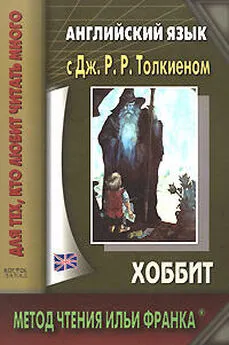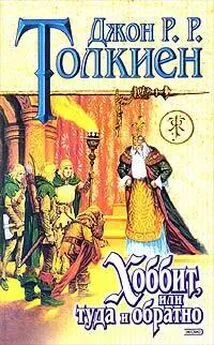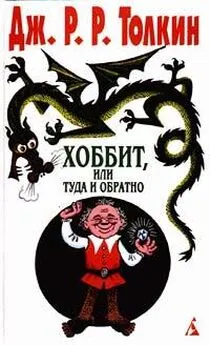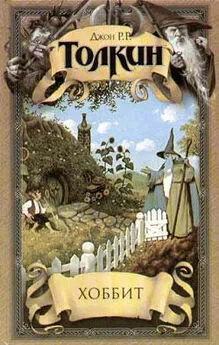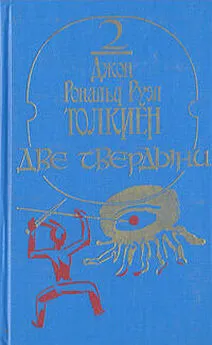Джон Толкиен - Английский язык с Дж. Р. Р. Толкиеном. Хоббит
- Название:Английский язык с Дж. Р. Р. Толкиеном. Хоббит
- Автор:
- Жанр:
- Издательство:АСТ, Восток-Запад
- Год:2008
- Город:Москва
- ISBN:978-5-17-048593-2, 978-5-478-00597-9
- Рейтинг:
- Избранное:Добавить в избранное
-
Отзывы:
-
Ваша оценка:
Джон Толкиен - Английский язык с Дж. Р. Р. Толкиеном. Хоббит краткое содержание
В книге предлагается произведение на английском языке Джона Р. Р. Толкиена «Хоббит», адаптированное (без упрощения текста оригинала) по методу Ильи Франка. Уникальность метода заключается в том, что запоминание слов и выражений происходит за счет их повторяемости, без заучивания и необходимости использовать словарь.
Пособие способствует эффективному освоению языка, может служить дополнением к учебной программе.
Предназначено для студентов, для изучающих английский язык самостоятельно, а также для всех интересующихся английской культурой.
Пособие подготовила Ольга Ламонова.
Английский язык с Дж. Р. Р. Толкиеном. Хоббит - читать онлайн бесплатно полную версию (весь текст целиком)
Интервал:
Закладка:
It was not a pleasant thought (мысль была неприятная: «это не была приятная мысль»)! They crept further down the tunnel (они поползли дальше вниз по туннелю), and there they lay and shivered (и там они легли и дрожали) though it was warm and stuffy (хотя и было тепло и душно; stuffy — спертый, душный, непроветренный ), until dawn came pale (пока не наступил бледный рассвет) through the crack of the door (сквозь трещину в двери). Every now and again (время от времени) through the night (в ночи) they could hear the roar of the flying dragon (они могли слышать рев летящего дракона) grow and then pass and fade (/он/ то нарастал, затем проходил и исчезал), as he hunted round and round the mountain-sides (пока тот все рыскал вокруг и вокруг склонов горы).
barely [ˈbeǝlɪ] shrivel [ˈʃrɪv (ǝ) l] pursue [pǝˈsju:]
They had barely time to fly back to the tunnel, pulling and dragging in their bundles, when Smaug came hurtling from the North, licking the mountain — sides with flame, beating his great wings with a noise like a roaring wind. His hot breath shrivelled the grass before the door, and drove in through the crack they had left and scorched them as they lay hid. Flickering fires leaped up and black rock-shadows danced. Then darkness fell as he passed again. The ponies screamed with terror, burst their ropes and galloped wildly off. The dragon swooped and turned to pursue them, and was gone. “That’ll be the end of our poor beasts!” said Thorin.
“Nothing can escape Smaug once he sees it. Here we are and here we shall have to stay, unless any one fancies tramping the long open miles back to the river with Smaug on the watch!”
It was not a pleasant thought! They crept further down the tunnel, and there they lay and shivered though it was warm and stuffy, until dawn came pale through the crack of the door. Every now and again through the night they could hear the roar of the flying dragon grow and then pass and fade, as he hunted round and round the mountain-sides.
He guessed from the ponies (по пони он догадался), and from the traces of the camps (и по следам лагерей) he had discovered (он обнаружил), that men had come up from the river and the lake (что люди пришли от реки и озера) and had scaled the mountain-side from the valley (и взобрались по склону горы из долины; to scale — подниматься, взбираться, перелезать ) where the ponies had been standing (где стояли пони); but the door withstood his searching eye (но дверь выстояла под его изучающим взглядом; to withstand (withstood) — устоять, выдержать ), and the little high-walled bay (и маленький изгиб горы с высокими стенами; wall—стена, ограда; walled—обнесенный, окруженный, укрепленный стеной ) had kept out his fiercest flames (сдержал его самые свирепые /языки/ пламени). Long he had hunted in vain (долго он еще рыскал, все тщетно) till the dawn chilled his wrath (пока рассвет не охладил его ярости; to chill — охлаждать, студить ) and he went back to his golden couch to sleep (и он не вернулся назад на свое золотистое ложе спать) — and to gather new strength (и набраться новых сил).
He would not forget or forgive the theft (но он не забыл бы и не простил бы воровства), not if a thousand years turned him to smouldering stone (/не забыл бы/, даже если бы тысяча лет /ожидания/ превратила бы его самого в тлеющий камень; to smoulder — гореть медленно, бездымно, тлеть ), but he could afford to wait (но он мог позволить себе подождать). Slow and silent he crept back to his lair (медленно и бесшумно он прокрался назад в свое логово) and half closed his eyes (и полуприкрыл глаза).
bay [beɪ] vain [veɪn] smoulder [ˈsmǝʋldǝ]
He guessed from the ponies, and from the traces of the camps he had discovered, that men had come up from the river and the lake and had scaled the mountain-side from the valley where the ponies had been standing; but the door withstood his searching eye, and the little high-walled bay had kept out his fiercest flames. Long he had hunted in vain till the dawn chilled his wrath and he went back to his golden couch to sleep — and to gather new strength.
He would not forget or forgive the theft, not if a thousand years turned him to smouldering stone, but he could afford to wait. Slow and silent he crept back to his lair and half closed his eyes.
When morning came (когда настало утро) the terror of the dwarves grew less (ужас гномов уменьшился: «стал меньше»; to grow (grew; grown) — расти, увеличиваться, зд: глагол-связка: становиться, делаться, to grow less — уменьшиться, уменьшаться ). They realized (они осознали) that dangers of this kind were inevitable (что опасности такого рода были неизбежными) in dealing with such a guardian (когда имеешь дело с таким стражником; to deal with smb.
— иметь дело с кем-либо ), and that it was no good (и нельзя: «и это было ничего хорошего = никуда не годится») giving up their quest yet (оставлять уже свои поиски). Nor could they get away just now (да они и не могли уйти прямо сейчас; to get away — удрать, ускользнуть; уходить, уезжать ), as Thorin had pointed out (как и указал особо Торин; to point out — указывать /пальцем/; выделять какой-либо предмет из группы других; обращать чье—либо внимание, подчеркивать ). Their ponies were lost or killed (их пони потерялись: «были потеряны» или были убиты), and they would have to wait some time (и им придется подождать какое-то время) before Smaug relaxed his watch sufficiently for them (пока Смауг не ослабит свое наблюдение достаточно для того, чтобы они; to relax — расслаблять (ся), ослаблять (ся) ) to dare the long way on foot (осмелились на долгий путь пешком: «на ноге»). Luckily they had saved enough of their stores (к счастью, они спасли достаточно из своих запасов; to save — спасать, уберегать, беречь ) to last them still for some time (чтобы хватило для них все еще некоторое время; to last — продолжаться, выдерживать; быть достаточным, хватать ).
They debated long (они долго обсуждали) on what was to be done (о том, что же должно /было/ быть сделано), but they could think of no way of getting rid of Smaug (но они не могли подумать ни об одном способе, как избавиться от Смауга; way — путь, дорога, направление; средство, метод, образ действия; to get rid of smb., smth. — избавиться, отделаться от кого-либо, чего-либо ) — which had always been a weak point in their plans (что всегда было слабым местом в их планах), as Bilbo felt inclined to point out (и Бильбо очень хотелось: «как Бильбо чувствовал склонным» указать на это; to feel inclined to do smth. — быть склонным, настроенным, расположенным сделать что-либо ). Then as is the nature of folk (затем, что совершенно свойственно людям: «какова природа людей») that are thoroughly perplexed (которые совершенно сбиты с толку), they began to grumble at the hobbit (они начали ворчать на хоббита), blaming him for what had at first so pleased them (виня его за то, что поначалу им так понравилось; to blame — обвинять, порицать, винить ): for bringing away a cup (за то, что он унес чашу; to bring away — выносить ) and stirring up Smaug’s wrath so soon (и разбудил гнев Смауга так скоро; to stir up — расшевелить, разбудить ).
terror [ˈterǝ] inevitable [ɪˈnevɪtǝb (ǝ) l] relaxed [rɪˈlækst]
When morning came the terror of the dwarves grew less. They realized that dangers of this kind were inevitable in dealing with such a guardian, and that it was no good giving up their quest yet. Nor could they get away just now, as Thorin had pointed out. Their ponies were lost or killed, and they would have to wait some time before Smaug relaxed his watch sufficiently for them to dare the long way on foot. Luckily they had saved enough of their stores to last them still for some time.
They debated long on what was to be done, but they could think of no way of getting rid of Smaug — which had always been a weak point in their plans, as Bilbo felt inclined to point out. Then as is the nature of folk that are thoroughly perplexed, they began to grumble at the hobbit, blaming him for what had at first so pleased them: for bringing away a cup and stirring up Smaug’s wrath so soon.
“What else do you suppose a burglar is to do (а что же еще, как вы полагаете, должен делать взломщик)?” asked Bilbo angrily (спросил Бильбо сердито). “I was not engaged to kill dragons (меня не нанимали убивать драконов; to engage — нанимать ), that is warrior’s work (это — работа воина), but to steal treasure (а /нанимали/ украсть сокровище; to steal (stole; stolen) — воровать, красть, делать что-либо украдкой ). I made the best beginning I could (я начал так хорошо, как только мог: «я сделал самое луччее начало, которое я мог»). Did you expect me (вы что, ожидали, что я) to trot back with the whole hoard of Thror on my back (прибегу /рысью/ назад со всем кладом Трора на /своей/ спине; to trot — идти рысью, семенить, торопиться )? If there is any grumbling to be done (если и надо ворчать: «если любое ворчание и должно быть сделано»), I think I might have a say (я думаю, я мог бы высказаться; to have a say — говорить открыто; иметь влияние; участвовать в решении чего-либо; say — высказывание, мнение, слово; авторитет, влияние ). You ought to have brought five hundred burglars not one (вам бы следовало привести с собой пять сотен взломщиков, а не одного). I am sure it reflects great credit on your grandfather (я уверен, что это делает огромную честь вашему деду; to reflect credit on /upon/ smb. — делать кому-либо честь; to reflect — отражать (ся); делать /честь/, навлекать /позор/; credit — вера, репутация, заслуга ), but you cannot pretend (но вы не можете делать вид) that you ever made the vast extent of his wealth clear to me (что вы вообще высказались ясно о том огромном размере его богатства: «что вы когда-либо изложили тот огромный размер его богатсва ясно мне»; extent — протяжение, степень, объем; to make clear — разъяснить, ясно излагать, дать понять ). I should want hundreds of years (мне понадобится сотни лет) to bring it all up (чтобы принести все наверх), if I was fifty times as big (если бы я был в пятьдесят раз больше), and Smaug as tame as a rabbit (а Смауг — безвредный, словно кролик; tame — ручной; послушный ). ”
Читать дальшеИнтервал:
Закладка:
